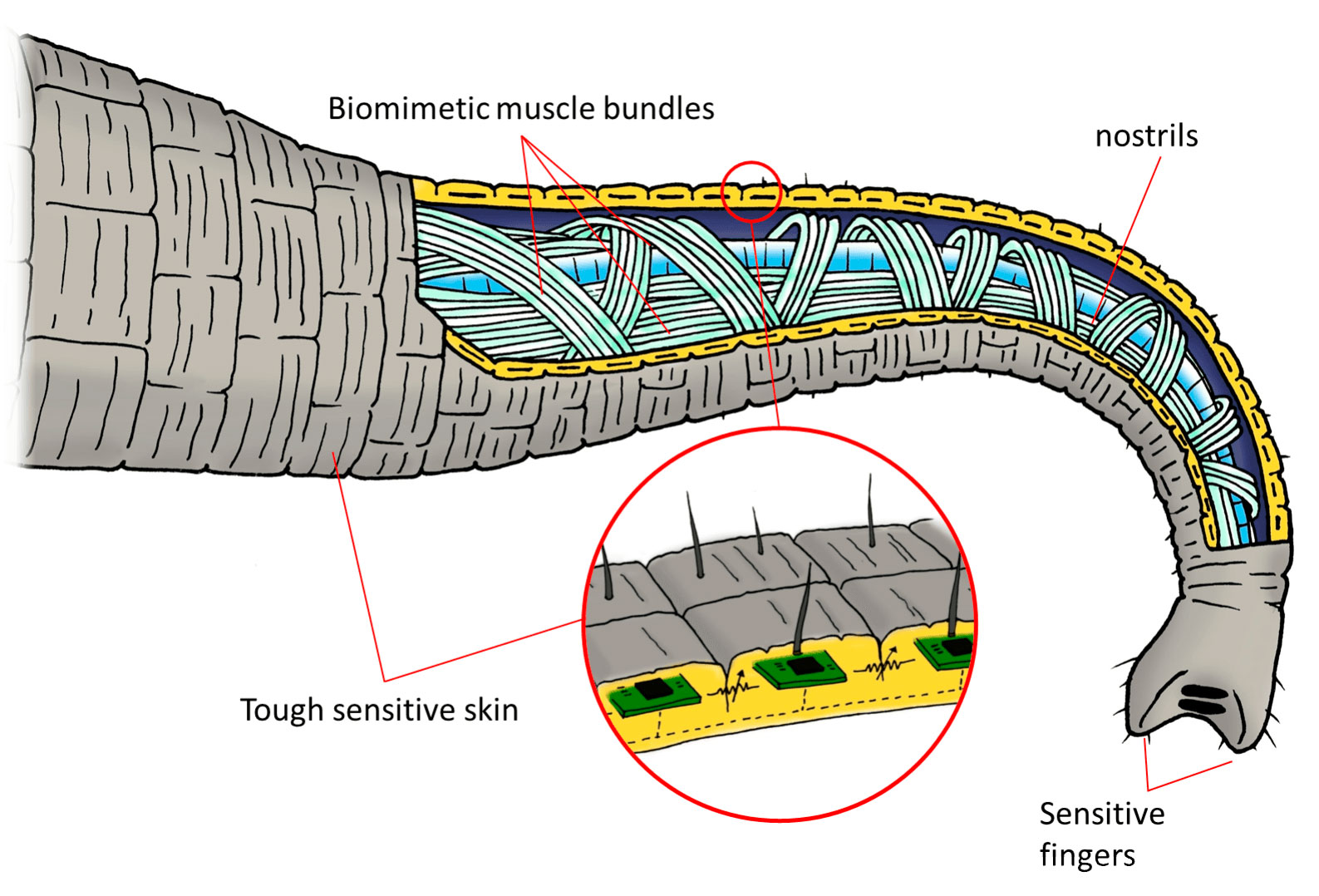The Project
From autonomous assembly lines, personal robot helpers, sorting robots in food production, and search & rescue operations, future robotic technology must deal with versatility, even beyond human capability, hinging on new forms of intelligence like those rooted on bioinspired design and soft robotics.
The elephant proboscis represents a remarkable biological model for a ground-breaking new concept of robotic manipulation. It is a highly sensitive organ with exceptional agility and versatility by which elephants sense and interact with the world. They can perform both strong tasks (like transporting heavy tree trunks), and delicate, highly precise tasks (such as picking up a single leaf) supported by more than a hundred thousand muscles, and a rugged skin.

In PROBOSCIS the main idea is to take inspiration from the anatomy and morphology of the natural proboscis, as well as from its gripping behaviour, by addressing unprecedented in-depth investigations on the elephant, and to develop totally new soft robotic strategies for versatile robotic manipulation.
The overarching goal is to establish a novel paradigm of tactile-based universal manipulation for real-world robots that, inspired from elephants, engage with uncertain environments, promptly adapt to unexpected situations and perform a multitude of real-world grasping tasks.
This vision will be grounded on new developments in proprioceptive biomimetic artificial muscles, bioinspired tough tactile skin and 3D sensing strategies, multifunctional materials and 3D fabrication technologies, and bioinspired control for tactile-driven soft manipulation.
The project consortium will provide multidisciplinary expertise for producing new knowledge on the elephant proboscis, and for developing new soft robotic technologies that will impact assistive, industrial, domestic, rescue and environmental applications.
PROBOSCIS is a European project funded under the Future and Emerging Technologies (FET) programme, specifically FET-Open, of the EU framework programme for research and innovation (Horizon 2020).